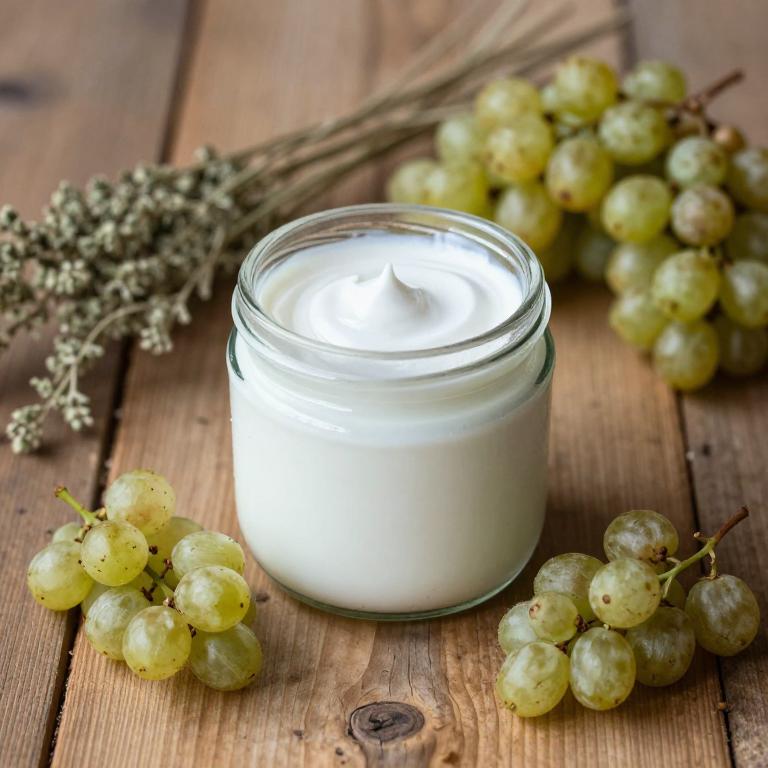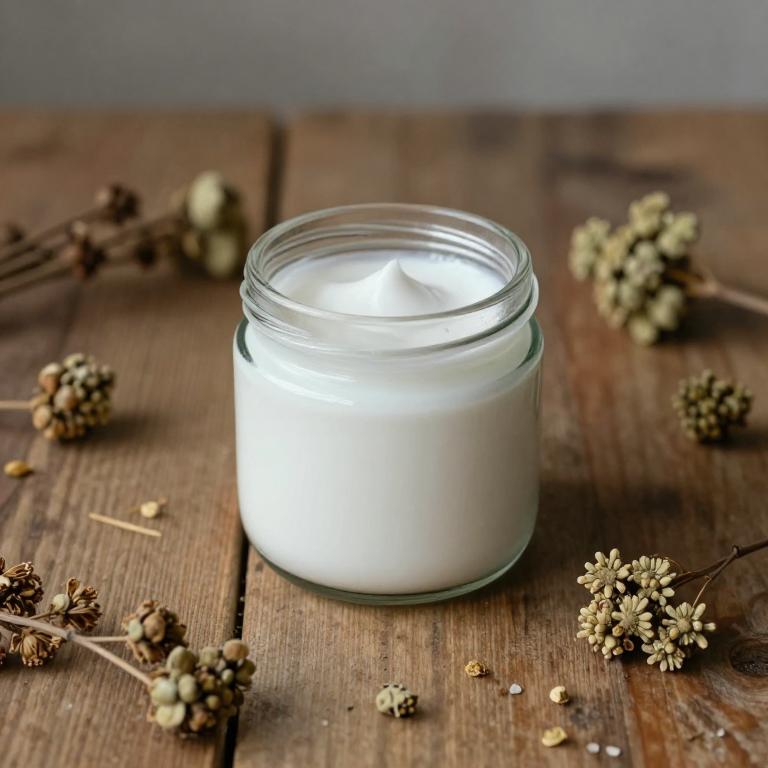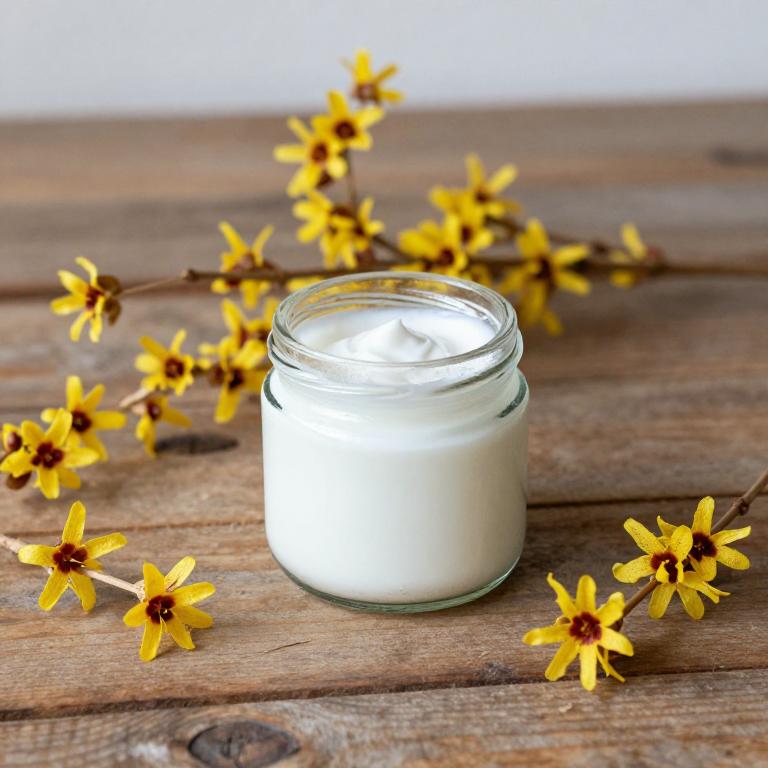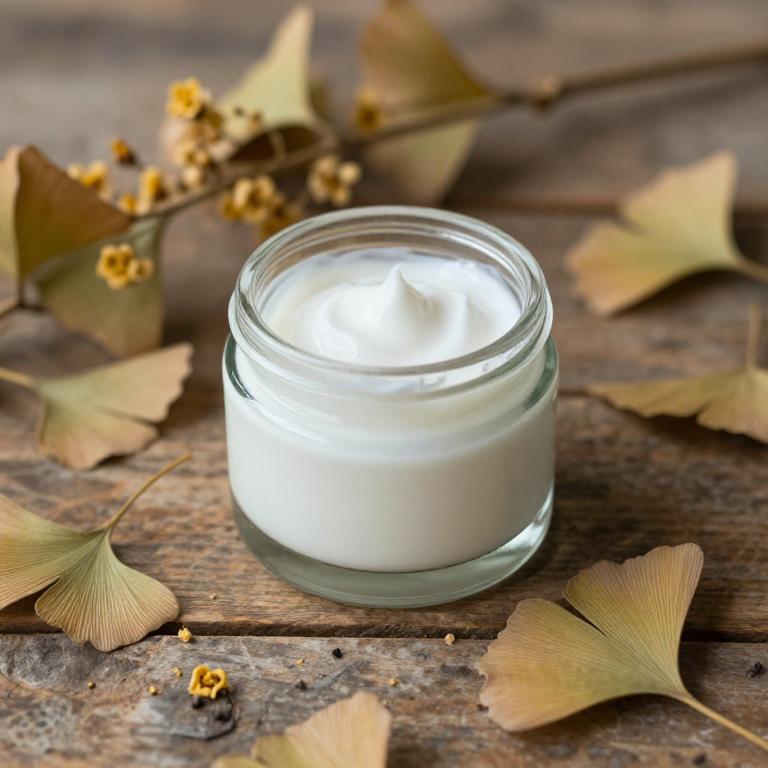10 Best Herbal Creams For Varicose Veins

Herbal creams for varicose veins are natural topical treatments that aim to alleviate symptoms such as pain, swelling, and heaviness in the legs.
These creams often contain ingredients like horse chestnut, garlic, ginger, and witch hazel, which are known for their anti-inflammatory and circulatory benefits. They work by improving blood flow and strengthening vein walls, thereby reducing the appearance and discomfort of varicose veins. While they are generally considered safe, it is important to consult a healthcare provider before use, especially if you have existing medical conditions or are taking other medications.
These creams can be a complementary therapy alongside lifestyle changes and medical treatments for more severe cases.
Table of Contents
- 1. Common grape (Vitis vinifera)
- 2. Dog rose (Rosa canina)
- 3. Horse chestnut (Aesculus hippocastanum)
- 4. Stinging nettle (Urtica dioica)
- 5. Blessed thistle (Cnicus benedictus)
- 6. Thistle (Silybum marianum)
- 7. St. john's wort (Hypericum perforatum)
- 8. English lavender (Lavandula angustifolia)
- 9. Witch hazel (Hamamelis virginiana)
- 10. Ginkgo (Ginkgo biloba)
1. Common grape (Vitis vinifera)

Vitis vinifera, commonly known as the grape vine, has been traditionally used in herbal remedies for its potential vascular benefits.
Herbal creams containing Vitis vinifera extract are formulated to support the health of blood vessels and may help alleviate symptoms associated with varicose veins. These creams often include other complementary ingredients like horse chestnut, aloe vera, and witch hazel, which are known for their anti-inflammatory and circulatory properties. The active compounds in Vitis vinifera, such as resveratrol, are believed to strengthen vein walls and improve blood flow.
While they are not a substitute for medical treatment, these creams can be a natural adjunct in managing the discomfort and appearance of varicose veins.
2. Dog rose (Rosa canina)

Rosa canina, also known as dog rose, is a traditional herbal remedy commonly used in the formulation of creams for varicose veins due to its high content of bioflavonoids and vitamins, which support vascular health.
These creams typically contain Rosa canina oil or extract, which helps to strengthen blood vessel walls and improve circulation. The anti-inflammatory and antioxidant properties of Rosa canina may help reduce swelling, pain, and discomfort associated with varicose veins. Regular application of these creams can promote better blood flow and may aid in the prevention of further vein damage.
While they are not a substitute for medical treatment, Rosa canina creams are often recommended as a complementary therapy for managing symptoms of varicose veins.
3. Horse chestnut (Aesculus hippocastanum)

Aesculus hippocastanum, commonly known as the horse chestnut tree, is widely used in herbal medicine for its potential benefits in treating varicose veins.
Herbal creams containing extracts of Aesculus hippocastanum are formulated to improve circulation and reduce the appearance of swollen, painful veins. These creams often include active compounds such as aescin, which has been studied for its ability to strengthen blood vessel walls and reduce inflammation. Regular application of such creams may help alleviate symptoms like heaviness, itching, and discomfort associated with varicose veins.
However, it is important to consult a healthcare professional before using these products, especially if you have underlying health conditions or are taking other medications.
4. Stinging nettle (Urtica dioica)

Urtica dioica, commonly known as stinging nettle, is a plant that has been traditionally used in herbal medicine for its potential benefits in improving circulation and reducing inflammation.
Herbal creams containing Urtica dioica are often formulated to support the treatment of varicose veins by promoting blood flow and reducing swelling in the legs. These creams are typically made by extracting the active compounds from the leaves and roots of the plant, which may include flavonoids and other anti-inflammatory agents. They are often used as a complementary therapy alongside other treatments for varicose veins, such as compression stockings or lifestyle changes.
While some studies suggest that Urtica dioica may offer relief for symptoms associated with varicose veins, it is important to consult with a healthcare provider before using any herbal remedy to ensure safety and effectiveness.
5. Blessed thistle (Cnicus benedictus)

Cnicus benedictus, commonly known as the blessed herb, is a traditional herbal remedy often used in the formulation of creams for varicose veins.
These creams are designed to improve circulation and reduce the appearance of swollen, painful veins by promoting blood flow and strengthening vein walls. The active compounds in Cnicus benedictus are believed to have anti-inflammatory and antioxidant properties that support vascular health. When applied topically, the herbal cream may help alleviate symptoms such as heaviness, itching, and discomfort associated with varicose veins.
While generally considered safe, it is advisable to consult a healthcare professional before use, especially for individuals with sensitive skin or underlying medical conditions.
6. Thistle (Silybum marianum)

Silybum marianum, also known as milk thistle, is a herbal remedy that has been traditionally used for its potential benefits in improving vein health.
Herbal creams containing silybum marianum are formulated to support the treatment of varicose veins by promoting circulation and reducing inflammation. These creams often combine silybum marianum with other natural ingredients like horse chestnut or witch hazel to enhance their effectiveness. The active compounds in silybum marianum, such as silymarin, are believed to strengthen blood vessel walls and improve blood flow.
While these creams may offer some relief, they should be used as part of a comprehensive approach that includes lifestyle changes and medical advice for optimal results.
7. St. john's wort (Hypericum perforatum)

Hypericum perforatum, commonly known as St. John's Wort, is a herbal plant that has been traditionally used for its potential therapeutic benefits.
While it is well-known for its use in treating mild to moderate depression, it is also being explored for its effects on varicose veins. Some studies suggest that the compounds in St. John's Wort, such as hypericin and flavonoids, may help improve circulation and reduce inflammation, which could be beneficial for individuals with varicose veins. Herbal creams containing St. John's Wort are often marketed as natural alternatives to support vein health and alleviate symptoms like pain and swelling.
However, it is important to consult a healthcare professional before using these creams, as they may interact with other medications or have side effects.
8. English lavender (Lavandula angustifolia)

Lavandula angustifolia, commonly known as English lavender, is often incorporated into herbal creams designed to alleviate symptoms associated with varicose veins.
These creams typically contain essential oils and extracts from lavender, which are known for their anti-inflammatory and circulatory benefits. The soothing properties of lavender may help reduce swelling, pain, and discomfort in affected areas. Additionally, the pleasant aroma of lavender can promote relaxation and enhance the overall experience of topical application.
While not a cure, lavender-based creams may serve as a complementary therapy to support vein health and improve circulation.
9. Witch hazel (Hamamelis virginiana)

Hamamelis virginiana, commonly known as witch hazel, is a popular herbal ingredient used in creams designed to alleviate symptoms associated with varicose veins.
These creams typically combine witch hazel with other natural components such as aloe vera, calendula, and essential oils to provide a soothing and nourishing effect on the skin. The astringent properties of witch hazel help to reduce inflammation, swelling, and skin irritation, which are common in individuals suffering from varicose veins. Regular application of these herbal creams can improve circulation and may help in reducing the appearance of varicose veins over time.
While they are generally safe for most skin types, it is advisable to perform a patch test before using any new topical product to avoid potential allergic reactions.
10. Ginkgo (Ginkgo biloba)

Ginkgo biloba herbal creams are topical treatments that contain extracts from the leaves of the ginkgo tree, known for their potential to improve blood circulation and reduce inflammation.
These creams are often used as a complementary therapy for varicose veins, which are enlarged, twisted veins that typically appear in the legs. The active compounds in ginkgo biloba, such as flavonoids and terpenes, may help strengthen blood vessel walls and enhance blood flow, potentially alleviating symptoms like swelling and discomfort. While some studies suggest that ginkgo biloba may support vascular health, it is important to consult a healthcare provider before using these creams, especially if you have underlying medical conditions or are taking other medications.
As with any herbal remedy, the effectiveness of ginkgo biloba creams can vary, and they should not replace conventional medical treatments for varicose veins.